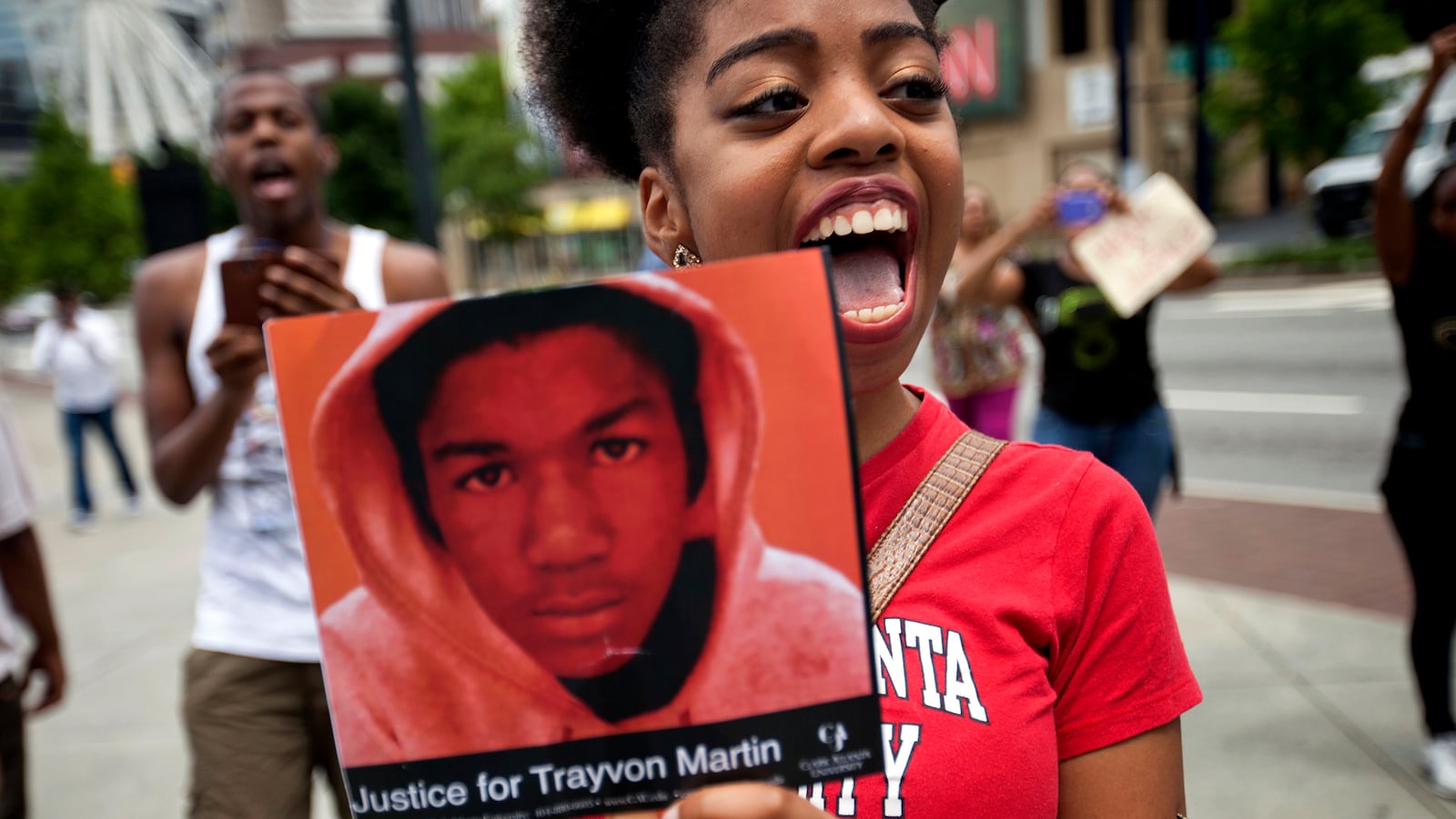“The struggle continues, our work isn’t over,” were the words of Melissa Harris-Perry an hour after the not-guilty verdict in the George Zimmerman trial. I agree. Work within the African-American community, work within the criminal-justice system, and work on a national level to further the debate over racial profiling, civil rights, and “stand your ground” laws must continue. The power of racial profiling and the power of the gun lobby is a lethal combination in America.

As a former prosecutor, I never would have brought the Zimmerman case to court. There was a high burden of proof giving way to reasonable doubt. That said, as an African-American, I know it was a victory just putting Zimmerman on trial.
No doubt, there will be a civil suit, and Zimmerman will have to testify. The outcome may echo O.J. Simpson’s civil trial, in which he was forced to testify and was found guilty. (I was on the prosecution team in the Simpson criminal case.) Today the NAACP wrote a letter to Attorney General Eric Holder requesting that the government prosecute Zimmerman under the Civil Rights Act. So truth and justice might be found for Trayvon Martin—in several other courts of law.
Yet I still believe in the criminal-justice system, as I did after the Simpson verdict. The O.J. case polarized America, dividing us along hard racial lines. African-Americans felt justified supporting O.J. as a “payback” for all the profound injustices we have suffered at the hands of the criminal-justice system. But O.J. Simpson was the wrong poster child for that righteous campaign. He was no hero, framed by the police. He was a cold-blooded killer, guilty of a gruesome double murder.
The election of Barack Obama pulled us up from the bleak hole created by the Simpson trial and unified many black and white people to believe and hope again—together. I do not see the same divide with the Zimmerman verdict. But the details of the case illustrate a real divide in racial experience. Would Zimmerman have followed a white teenager? Would he have thought that boy suspicious or a threat?
Our national collective expectation of equal justice is based on our feeling of morality—not legality. We want the morality of a situation to match the criminality. That is often not the result in our court system. Trayvon Martin had the right to be afraid, the right to fight a stranger who was armed and prepared to use deadly force against him. Trayvon Martin had a right to stand his ground. That is our moral position. Racial disparity in killings that are found justifiable demonstrates that black life is not as valued as white life in this country. That is our reality.
The televised Simpson trial became a trial about race, celebrity, and wealth when it should have been about domestic violence and murder. The televised Zimmerman trial became a trial about demonizing Trayvon Martin, creating a black bogeyman who could legitimize racial profiling and vigilante murder.
Within the legal community, many feel the Zimmerman trial’s prosecution team was never really in the game. The prosecutors did not have a consistent story to tell the jury, and they shied away from race.
At the press conference, after the verdict, Zimmerman’s defense team was deplorable. Those lawyers felt the need to spike the football with no regard for the death of Trayvon or the grief of the Martin family. They chose not to acknowledge the killing of this teenage child.
As a father, I always think of the safety of my children. As an African-American, I have experienced racism in all its malevolent forms. I instruct my children about how to behave in certain situations, including interacting with the police. The Zimmerman case makes us face, question, and come to terms again with the truth of violence by those who feel we don’t belong.
A dead reckoning is used in navigation as a process of calculating a current position by using a previous “fixed point,” whereby you intuitively calculate where you are and where you are going by where you have been. I believe this is where America is with race. Our country is at an intuitive fixed point that may or may not be as far along as we imagined. The Zimmerman case was a race case. Zimmerman would not have followed Trayvon Martin if he were not black. The media did not make this case a race case. The family of Trayvon Martin did not make this a race case. George Zimmerman did.
“Trayvon Martin will forever remain in the annals of history next to Medgar Evans and Emmet Till as symbols for the fight for equal justice for all.” Benjamin Crump, the Martin family attorney, said after the verdict.
In the end, Trayvon Martin did not have to die. And I believe, we will not retreat. We will be heard. When I look at my son, a 15-year old, 5-foot-11 inch, 145-pound, black maIe, I am compelled to take note of how very much he looks like Trayvon. I’m glad it was not my son who ran out for iced tea and a bag of Skittles and ended up dead. In my son and in all the black boys in this color-struck nation, I see thousands upon thousands of Trayvons. In many ways, we are all Trayvon.




